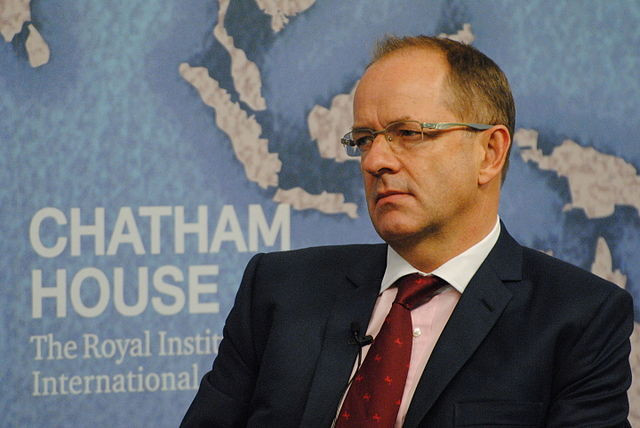UnitedHealth Group announced the abrupt resignation of CEO Andrew Witty on Tuesday, citing "personal reasons," as the health care giant grapples with surging medical costs, a massive cyberattack, and the murder of a top executive. The company's shares plunged more than 15% in early trading after it suspended its 2025 financial outlook.
Witty will be replaced by Stephen Hemsley, who served as UnitedHealth's CEO from 2006 to 2017 and currently chairs the board. The company described the move as a return to "long-term growth objectives," while offering no further explanation for Witty's departure.
"We are grateful for Andrew's stewardship of UnitedHealth Group, especially during some of the most challenging times any company has ever faced," Hemsley said in a statement. "The Board and I have greatly valued his leadership and compassion."
Witty will stay on as a senior adviser to Hemsley. "Leading the people of UnitedHealth Group has been a tremendous honor," Witty said in the release. "They will continue to inspire me."
Investors reacted sharply to the leadership change and the suspension of guidance. UnitedHealth cited unexpectedly high medical costs from new Medicare Advantage enrollees as a key factor, contributing to a nearly $50 billion loss in market capitalization as shares dropped below $320. Prior to Tuesday's announcement, UnitedHealth stock had already fallen over 25% in the past 12 months.
UnitedHealth's decision to suspend its outlook follows mounting pressures across multiple fronts:
- A Justice Department civil fraud probe into its Medicare billing practices, as first reported by The Wall Street Journal, remains ongoing.
- A February cyberattack on its Change Healthcare unit led to the theft of records belonging to approximately 190 million individuals, disrupting payments across the U.S. health care system.
- In December, Brian Thompson, CEO of UnitedHealthcare, was fatally shot. The alleged killer, Luigi Mangione, was later apprehended. The motive and trial are pending.
Witty defended the company's employees following the attack on Thompson, writing in a New York Times op-ed, "We also are struggling to make sense of this unconscionable act and the vitriol that has been directed at our colleagues who have been barraged by threats."
He also acknowledged systemic issues in U.S. health care, stating, "We know the health system does not work as well as it should, and we understand people's frustrations with it. No one would design a system like the one we have."
Analysts expressed concern over the abrupt leadership transition and questioned whether Hemsley's return is a long-term solution. "It seems a sort of very sudden move for Witty to leave," said James Harlow, senior vice president at Novare Capital Management. "I think putting in Hemsley just seems like a stopgap."
Kevin Gade, COO at Bahl & Gaynor, said Witty's exit, coupled with the operational turmoil and personal strain following Thompson's death, may have factored into the decision. "We're not likely to hear more on Andrew's departure," Gade said, "but it's fair to suggest the recent killing of his co-worker, the constant fear of his family's and his safety and the operational pressures likely led in part to this decision."
UnitedHealth executives reiterated on Tuesday's investor call that they expect to resume growth in 2026 and that they will adjust pricing in 2025 to reflect higher demand, particularly in Medicare Advantage plans. "Many of the issues standing in the way of achieving our goals as well as our opportunities are largely within our control," Hemsley told investors.




